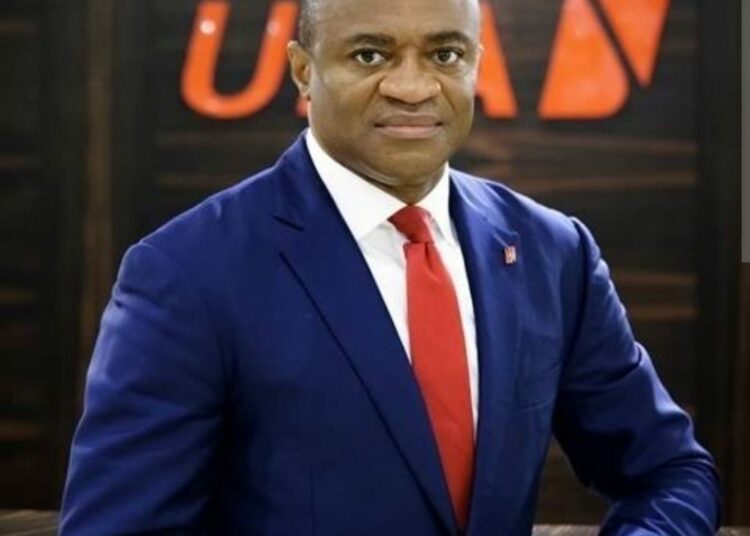The Group Managing Director/Chief Executive Officer of United Bank for Africa (UBA) Plc, Oliver Alawuba, has joined the Chief Justice of Nigeria, Justice Kudirat Kekere-Ekun, and other top stakeholders in calling for stronger collaboration between Nigeria’s financial and judicial sectors to drive sustainable economic growth.
The call was made at the 23rd National Seminar on Banking and Allied Matters for Judges, which commenced on Tuesday at the National Judicial Institute (NJI) in Abuja.
The two-day seminar, themed “Justice and Finance in Partnership: Enabling Trust, Security and Nigeria’s Economic Growth and Development,” was jointly organised by the Chartered Institute of Bankers of Nigeria (CIBN) and the NJI. It attracted leading judges, financial regulators, bank executives, legal scholars, and law enforcement officials to deliberate on issues affecting Nigeria’s financial and legal ecosystems.
Alawuba, who also serves as Chairman of the Body of Bank CEOs, underscored the judiciary’s central role in economic transformation. He stated that a reliable and knowledgeable judicial system is vital for resolving financial disputes involving cybercrime, fraud, and contract enforcement, which directly impact the efficiency of the financial sector.
“No economy can thrive without the guiding framework of justice. The banking industry relies daily on the predictability, impartiality, and efficiency of our courts—from enforcing contracts to managing credit systems,” Alawuba noted.
He raised concerns about the growing burden of non-performing loans, which have now surpassed ₦1.57 trillion, citing judicial delays as a major factor. He urged for urgent reforms including digitization of court processes, enhanced capacity building, and the establishment of specialised financial courts to improve outcomes. “Our collaboration is a necessity, not a luxury. Without a strong judiciary, credit expansion and investor confidence will remain limited,” he added.
In her keynote address, Justice Kekere-Ekun highlighted the judiciary’s role in fostering economic confidence and legal stability. “Judicial predictability is not merely a legal virtue—it is a critical economic asset. It improves market efficiency, reduces risk premiums, and attracts capital for infrastructure and enterprise development,” she said.
She also called for continuous judicial education to keep pace with developments in digital finance, cybercrime, and fintech. “Courts must be equipped to interpret complex financial transactions and assess innovative instruments within existing legal frameworks,” she stressed.
Prof. Pius Olanrewaju, President and Chairman of Council, CIBN, reinforced the seminar’s core message. “Trust is the lifeblood of banking; security is its foundation. Every deposit, loan, and financial agreement hinges on the certainty that rights will be protected and justice will prevail,” he said. He emphasised the judiciary’s indispensable role in upholding the integrity of the financial system.
In his welcome remarks, the NJI Administrator, Justice Salisu Abdullahi, echoed the same sentiment, stating that a competent and independent judiciary not only resolves disputes but also serves as a pillar of economic progress. “A trusted judiciary creates an environment where capital can safely flow, innovation can flourish, and businesses are empowered to grow,” he said.
Discussions at the seminar also touched on the importance of harmonising legal frameworks, improving the speed of adjudication, and strengthening alternative dispute resolution systems to enhance investor confidence and improve economic outcomes.
We’ve got the edge. Get real-time reports, breaking scoops, and exclusive angles delivered straight to your phone. Don’t settle for stale news. Join LEADERSHIP NEWS on WhatsApp for 24/7 updates →
Join Our WhatsApp Channel










